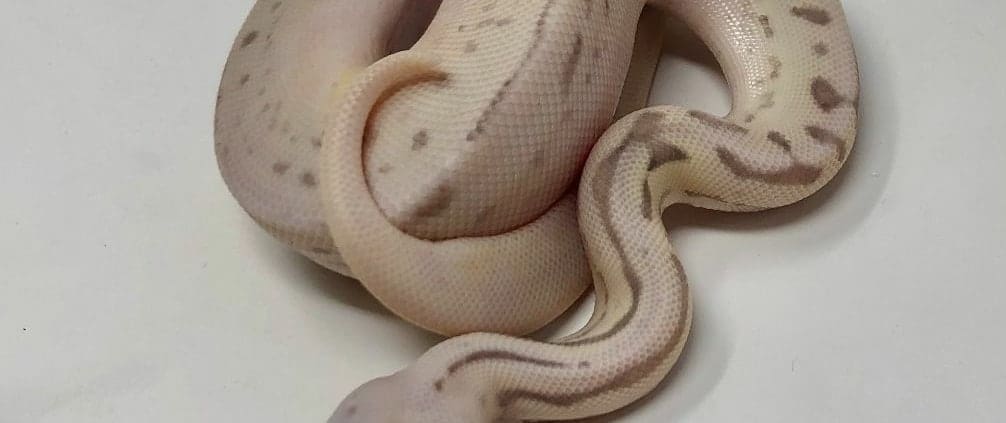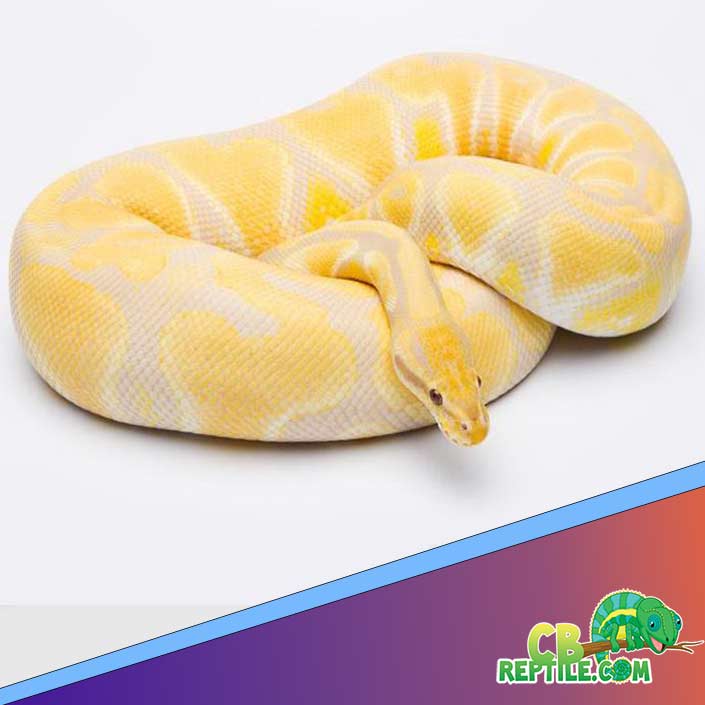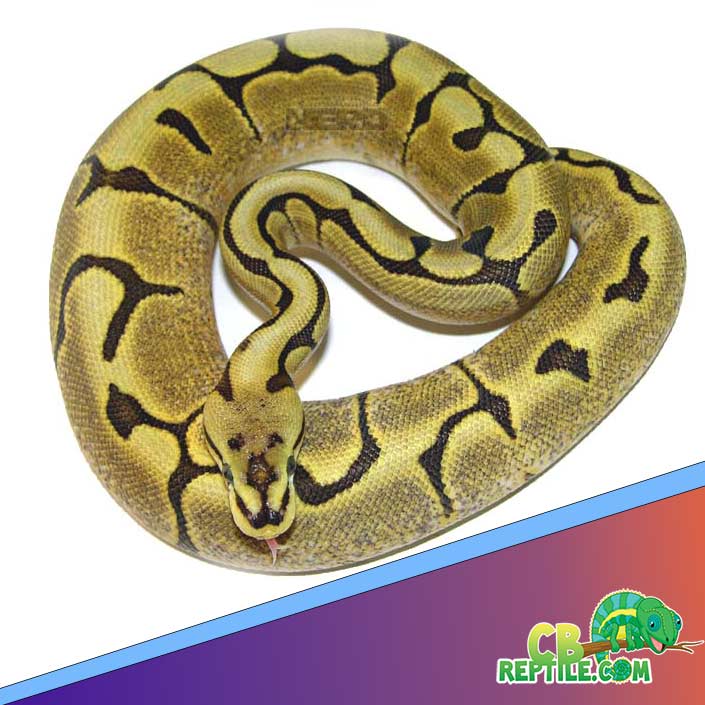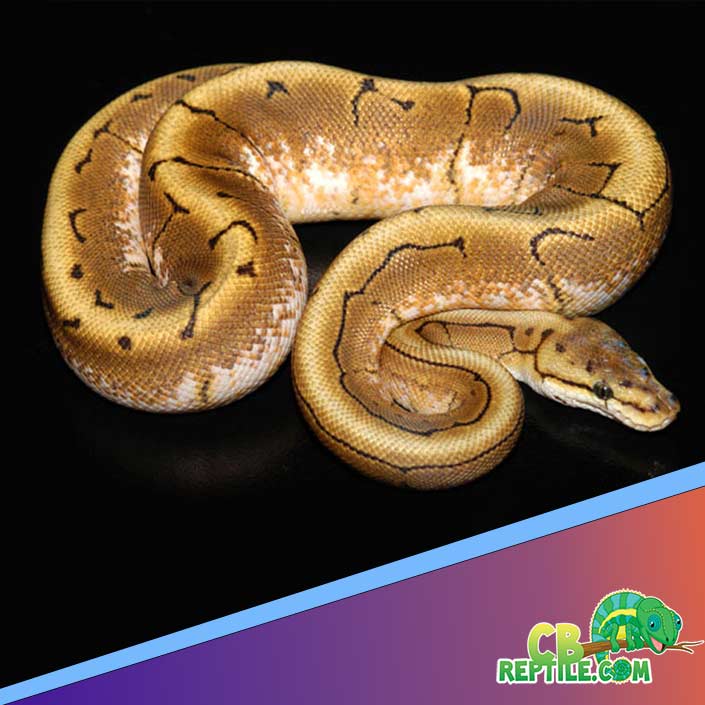
Handling Your Pet Ball Python: A Happy Keeper’s Guide

If you’re looking for healthy, captive-bred snakes, check out the wide variety of ball pythons for sale at CBReptile.com.

Why Handling Is Important
Handling is more than just fun—it’s an essential part of ball python ownership. Regular, gentle handling helps your snake grow accustomed to human interaction, reducing stress during enclosure cleaning, feeding, or vet visits. A well-handled snake is typically calmer and more confident, making your experience as a keeper much happier.
When to Handle Your Ball Python

- After settling in: Allow at least a week of adjustment before handling a new arrival.
- Avoid after meals: Wait at least 48 hours after feeding to prevent regurgitation.
- Not during shed: Cloudy eyes and dull color indicate your snake is about to shed—best to leave them alone until after.
- Calm moments: Handle your snake during quiet, relaxed times, not when it is in hunting mode.
How to Properly Handle Your Ball Python
Ball pythons are docile by nature, but proper handling technique ensures safety and comfort for both of you. Follow these steps:
- Approach slowly: Move calmly and confidently when reaching into the enclosure.
- Support the body: Use both hands to lift, supporting as much of the snake’s length as possible.
- Be gentle: Allow the snake to move freely through your hands without gripping or squeezing.
- Short sessions: Begin with 5–10 minutes, gradually increasing as your snake becomes more confident.
Habitat Setup for Confident Handling
A well-designed habitat directly impacts how comfortable your ball python feels, which affects their tolerance of handling. Stress-free snakes are calmer and easier to handle.
Enclosure Size
- Hatchlings: 10–20 gallon tanks
- Juveniles: 20–40 gallons
- Adults: 40+ gallons or larger enclosures
Décor & Substrate
Provide at least two hides, one on each side of the temperature gradient. Add branches, cork bark, and artificial plants to mimic a natural environment. Suitable substrates include aspen, cypress mulch, or paper bedding. A secure, enriching enclosure means a relaxed python, which translates to calmer handling sessions.
Temperature & Humidity
Maintaining correct temperatures is vital for your python’s digestion and overall health. Healthy, well-regulated snakes are more comfortable being handled.
- Warm side: 88–92°F surface temperature for basking and digestion.
- Cool side: 75–80°F ambient temperature.
- Nighttime: No lower than 72°F.
Keep humidity around 50–60%, and increase it slightly during shedding (65–70%). These conditions not only support good health but also contribute to a calmer temperament.
Feeding and Handling Balance
Feeding schedules should always be coordinated with handling. Never handle your snake right after meals. Young ball pythons usually eat every 5–7 days, juveniles weekly, and adults every 10–14 days. Allow digestion time before handling for a stress-free experience.
Raising a Baby Ball Python
Young ball pythons may be a bit more nervous at first, but with gentle, consistent handling they become just as docile as adults. When you choose a baby ball python from CBReptile.com, you’ll receive a healthy, captive-bred animal that has been started on frozen/thawed prey and raised in proper conditions, making handling much easier from the start.
Why Buy From Real Breeders Like CBReptile.com?
Not all sources for snakes are equal. Many big-box stores and online resellers provide animals from mass suppliers where care and health histories are uncertain. This can lead to stress, illness, or difficulty eating and handling. Choosing real breeders ensures your python has been raised with proper nutrition, health care, and socialization.
CBReptile.com is family-run, passionate about reptiles, and has been breeding ball pythons for over a decade. Their snakes are captive-bred, parasite-free, and accustomed to eating frozen/thawed meals. They also provide ongoing customer support, making them the top choice for keepers across the USA.
Daily & Weekly Care Routine
- Daily: Check temperatures, humidity, and water levels. Spot-clean waste.
- Weekly: Feed on schedule, handle gently, and check overall health.
- Monthly: Perform a deep clean of the enclosure and rotate décor for enrichment.
Happy Keeper’s Checklist
- Approach calmly and support the snake’s body during handling.
- Wait at least 48 hours after feeding before handling.
- Provide secure hides and a proper temperature gradient in the enclosure.
- Maintain humidity at 50–60% (higher during shed).
- Handle regularly but gently to build trust.
- Choose CBReptile.com for healthy, captive-bred ball pythons.
